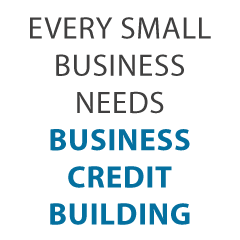Starting a Business in North Carolina
A new business in North Carolina is not out of reach. So have you been wondering: how do I start a business in North Carolina? And more importantly, can I do so no matter what the economic conditions are? Can I start a new business in North Carolina during a recession?
This blog post may contain affiliate links, meaning when you click the links for some products and make a purchase, Credit Suite receives a commission at no additional cost to you.
New Business in North Carolina: Pros and Cons
Per a 2016 article by Business Insider, North Carolina is in the top twenty states to start a new business in. This is for the entire nation. There are also up and coming business centers. These are in cities like Asheville and Durham, Chapel Hill, and Winston.
It has solid numbers across about all factors. The rate of new business owners, its opportunity share of new business owners, and density of startup companies are all above average.
Also, the state’s business survival rate ranks among the nation’s ten best. There is also a somewhat cheaper cost of living.
Recent Upsurge
According to a 2018 Forbes article, North Carolina clocked in at number one! Forbes cited the state’s business costs and labor supply mainly, and its regulatory environment. Quality of life and growth prospects also ranked highly.
North Carolina even kept its #1 ranking in a 2022 CNBC article, where the state was praised for its economy (#1) and access to capital (#2). There were only two areas where it had a ranking out of the top 22—those were cost of doing business at #26, and life, health, and inclusion, at #28.
Start a New Business in North Carolina – North Carolina Top Industries
Per the Economic Development Partnership of North Carolina (EDPNC), the biggest industries in North Carolina are automotive, truck, and heavy machinery. Top industries are also aerospace and defense; and biotechnology and pharmaceuticals.
Even more top North Carolina industries are energy, business and financial services. Top industries are also corporate headquarters. North Carolina is home to Lowe’s and Bank of America, among others.
Yet more top industries are furniture and information technology. Also, top industries are food processing and manufacture, and textiles. Top industries in North Carolina are also plastics and chemicals.
North Carolina Business Ideas
Smart business owners can find new opportunities. Work with bigger industries in the state. Offer goods or services such as developing and distributing safety equipment.
Another option is trucking for any industry. More choices are also data and other computer support such as programming. Also, there’s always food service, among others.
Here is how to start a new business in North Carolina.
Start a New Business in North Carolina – North Carolina New Business Secretary of State Requirements
Register a Business Name
Check business name availability on the official North Carolina government website.
Corporations
Corporations must have unique names. Make sure a name is not already in use.
There are many databases, catalogs, and other records of corporations to search. Start by searching the database of corporations registered in the state of North Carolina. It is available at the North Carolina Secretary of State website.
Corporate Name Reservations
A business owner can reserve a certain corporate name if they do not plan to file Articles of Incorporation right away. However, a reservation is not necessary. The fee is $30.00 and the name they submit will then be reserved for a period of 120 days. The application form is at Reserve a North Carolina Corporation on the North Carolina Secretary of State website.
Business Permits and Licenses: How to Get a Business License in NC
The Labor and Economic Analysis Division website keeps a useful pull down menu with all license info.
Local Permits and Licenses
So check with your local municipality, city or county office or website. See if there may be any local licensing or permit requirements.
For example, in Charlotte, go to the Licensing and Permitting page on the city of Charlotte website.
Start a New Business in North Carolina – Business Registration
Visit the North Carolina Business Registration page of the Department of Secretary of State. Or try the Economic Development Partnership of North Carolina.
Tax Registration
The North Carolina Department of Revenue breaks down everything you may need to register for taxes.
Start a New Business in North Carolina – Virtual Offices
Alliance offers North Carolina virtual business office space in Charlotte and Raleigh. So go to Regus for more options. Also, go to DaVinci for Durham, Greensboro, and High Point.
For Fayetteville, Greenville, and Wilmington, and other parts of the state, ask local business owners. Or try user groups for help in this area.
More options may be virtual business office space in nearby states. These are for doing business in Georgia, South Carolina, Tennessee, and also Virginia.
Start a New Business in North Carolina – Establish Business Credit
Company credit is credit in a company’s name. It doesn’t attach to an owner’s consumer credit, not even if the owner is a sole proprietor and the sole employee of the small business.
Therefore, an entrepreneur’s business and personal credit scores can be very different.
The Advantages
Because company credit is independent from personal, it helps to protect a small business owner’s personal assets, in case of court action or business bankruptcy.
Also, with two separate credit scores, a business owner can get two separate cards from the same vendor. This effectively doubles buying power.
Another advantage is that even start-ups can do this. Visiting a bank for a business loan can be a formula for disappointment. But building small business credit, when done correctly, is a plan for success.
Personal credit scores depend on payments but also other factors like credit use percentages.
But for small business credit, the scores actually merely depend on if a business pays its invoices punctually.
Start a New Business in North Carolina – Business Fundability™
Establishing small business credit is a process, and it does not happen without effort.
A small business has to be Fundable to lending institutions and vendors.
For this reason, a business will need a professional-looking web site and email address. And it needs to have website hosting from a merchant like GoDaddy.
Additionally, the company telephone number should be toll-free (800 exchange or similar).
A company will also need a bank account dedicated purely to it, and it has to have every one of the licenses essential for operating.
Dealing with the IRS
Visit the IRS website and acquire an EIN for the company. They’re free. Pick a business entity like corporation, LLC, etc.
A business can get started as a sole proprietor. But they will probably wish to switch to a variety of corporation or an LLC.
This is in order to lessen risk. And it will optimize tax benefits.
A business entity will matter when it pertains to taxes and liability in case of a lawsuit. A sole proprietorship means the entrepreneur is it when it comes to liability and tax obligations. Nobody else is responsible.
And never look at a DBA filing as being anything beyond a steppingstone to incorporating.
Start a New Business in North Carolina – Starting Off the Business Credit Reporting Process
Start at the D&B website and get a free D-U-N-S number. A D-U-N-S number is how D&B gets a company in their system, to generate a PAYDEX score. If there is no D-U-N-S number, then there is no record and no PAYDEX score.
Once in D&B’s system, search Equifax and Experian’s sites for the company. You can do this at www.creditsuite.com/reports. If there is a record with them, check it for accuracy and completeness. If there are no records with them, go to the next step in the process.
By doing this, Experian and Equifax will have activity to report on.
Vendor Credit
First, you must establish trade lines that report. This is also known as vendor credit. Then you’ll have an established credit profile, and you’ll get a business credit score.
And with an established business credit profile and score you can begin to get more credit.
These kinds of accounts tend to be for the things bought all the time. Like marketing materials, shipping boxes, outdoor work wear, ink and toner, and office furniture.
But first off, what is trade credit? These trade lines are credit issuers who will give you preliminary credit when you have none now. Terms are commonly Net 30, instead of revolving.
Therefore, if you get approval for $1,000 in vendor credit and use all of it, you must pay that money back in a set term, like within 30 days on a Net 30 account.
Vendor Credit – It Helps
Not every vendor can help like true starter credit can. These are vendors that will grant an approval with very little effort. You also want them to be reporting to one or more of the big three CRAs: Dun & Bradstreet, Equifax, and Experian.
You want 3 of these to move onto the next step.
Start a New Business in North Carolina – Monitor Your Business Credit
Know what is happening with your credit. Make sure it is being reported and address any mistakes as soon as possible. Get in the habit of taking a look at credit reports. Dig into the particulars, not just the scores.
We can help you keep track of your business credit at major CRAs for considerably less than it would cost you at the CRAs.
Update Your Record
Update the relevant information if there are mistakes or the relevant information is incomplete.
A Word about Building Business Credit
Always use credit responsibly! Don’t borrow beyond what you can pay back. Keep track of balances and deadlines for repayments. Paying off punctually and completely will do more to raise business credit scores than nearly anything else.
Establishing business credit pays off. Good business credit scores help a company get loans. Your lending institution knows the business can pay its financial obligations. They recognize the company is for real.
The small business’s EIN attaches to high scores and lenders won’t feel the need to ask for a personal guarantee.
Business credit is an asset which can help your business for many years to come.
Learn more here and get started toward opening a new business in North Carolina.
Want to start a new business someplace else in America? Then check out our handy guide to starting a business in any state in the country.
North Carolina’s Response to COVID-19
On March 17, Governor Roy Cooper ordered bars and restaurants closed to sit-down service. The Governor’s order also lifted some restrictions on unemployment benefits to help workers unemployed due to Covid-19 and those who are employed but will not receive a paycheck. Additionally, it adds benefit eligibility for those out of work because they have the virus or must care for someone who is sick.
North Carolina businesses are eligible for disaster loans from the SBA.
In April of 2020, it was announced that Fayetteville will receiving funding from the CARES Act.

